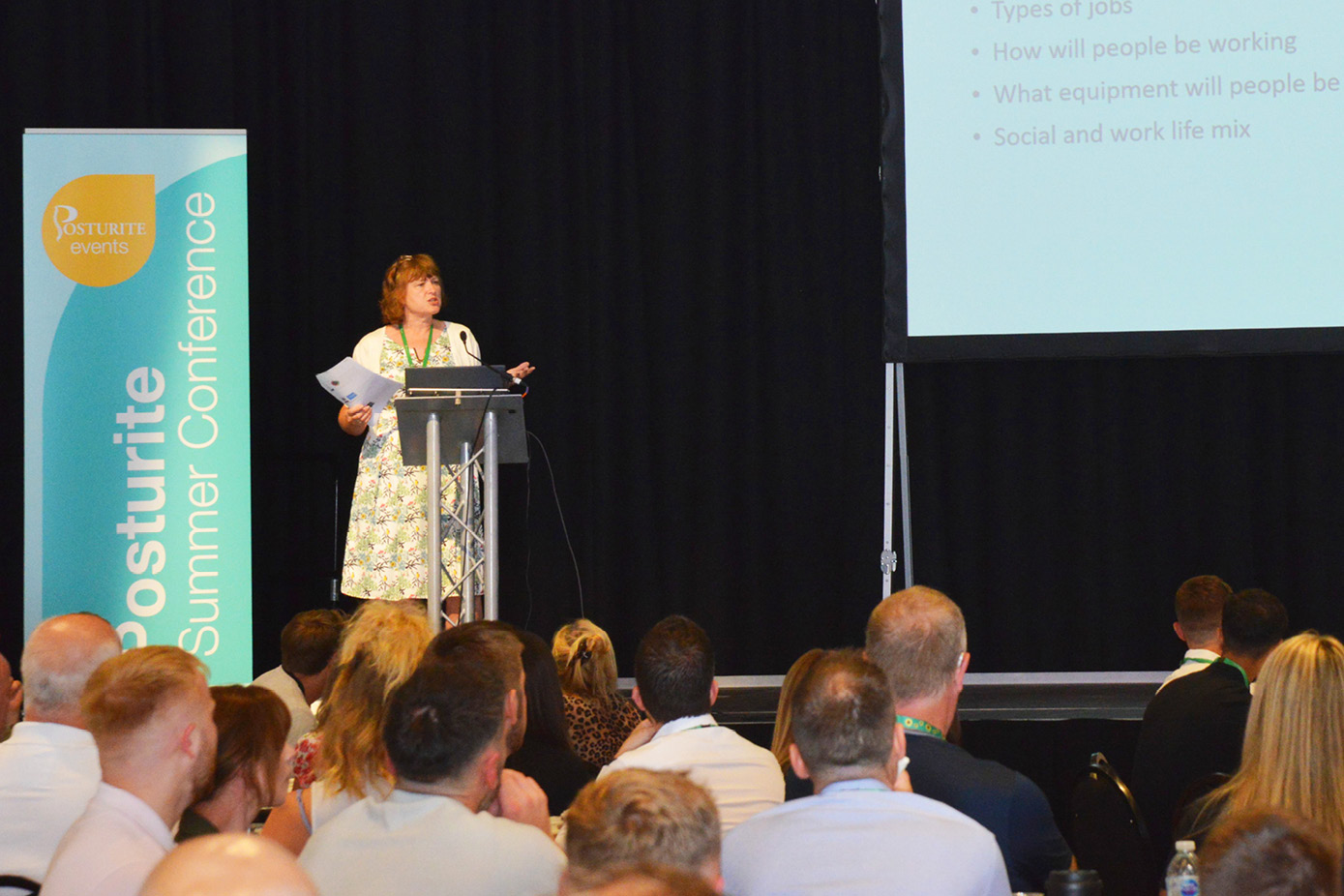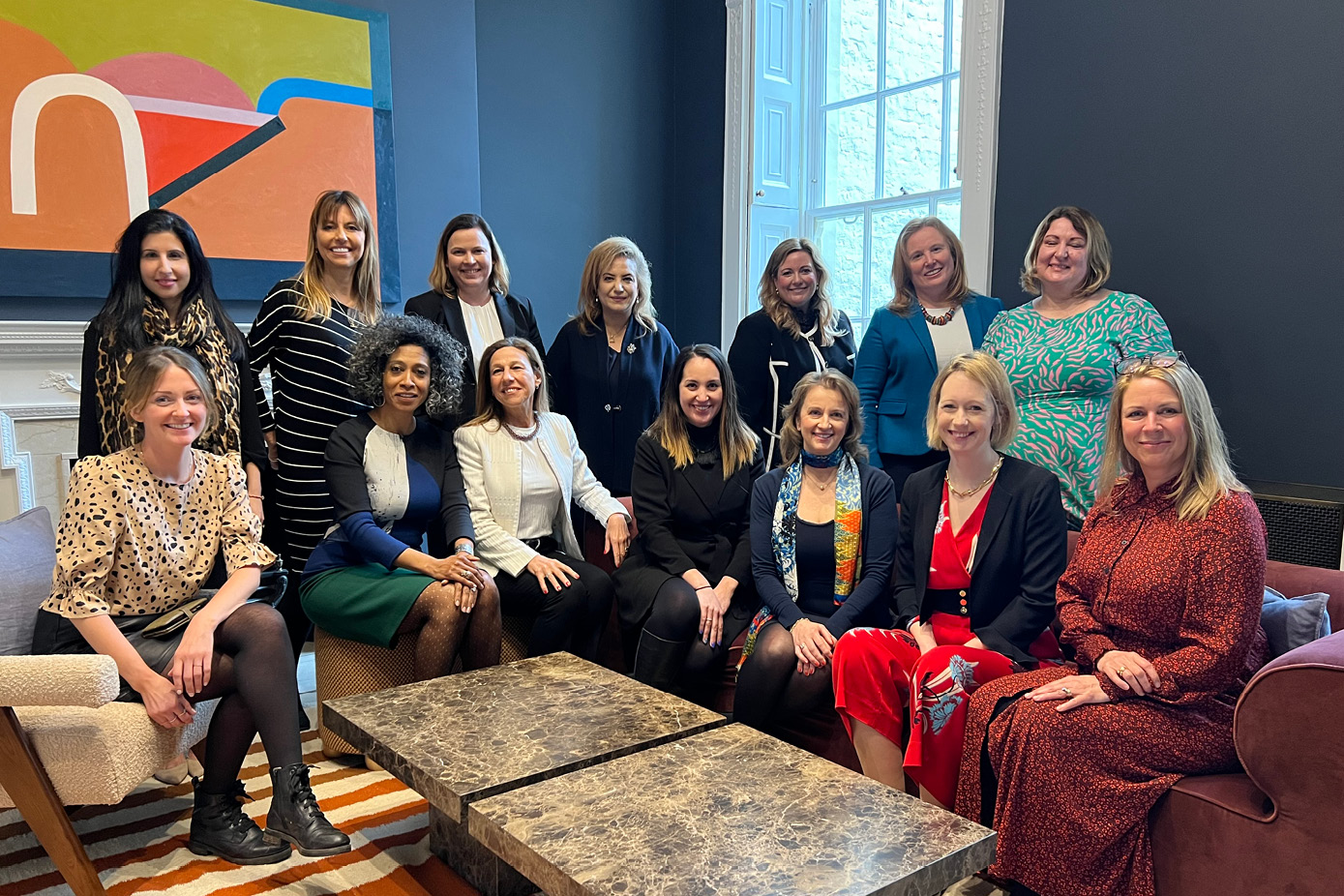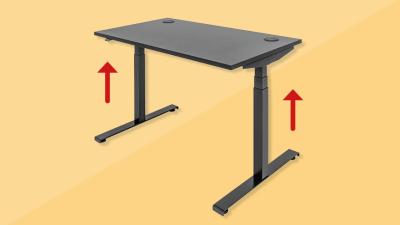
Today I’ve discovered that the 2022 gender pay gap in the UK is a significant 14.9%. I’m a professional woman with a career that’s important to me; why haven’t I given more thought to the gender pay gap until now?
My interviewee Ella Tyler, COO and Co-Founder of Lead5050, next tells me that by the age of 65 in the UK, a woman on average has earned £390,000 less than an equivalent man.
OK, my discontent has just gone up a notch.
In this article we’ll hear Ella Tyler’s insights into the reasons why the gender pay gap remains wide and why businesses would benefit from closing it. We’ll explore the advantages of making leadership teams more gender-balanced. Her consultancy Lead5050 uses data, research and expertise to find out what’s causing an organisation’s gender pay gap and helps them take long-term action to close it. I approached her for comment as she is setting LinkedIn alight right now with thought-provoking content about inequality for women at work.
What do we mean by the term ‘gender pay gap’?
It’s the difference between average hourly earnings for men and women for all workers. (By the way, it’s currently up to employers how they include trans people in gender pay reporting.) Ask your colleagues what they’d guess the current UK gender pay gap to be in the UK? Mine guessed between 2% and 25%, with the correct answer for 2022 being 14.9%. Pay of course can’t be ignored as a factor in our wellbeing at work.
Ella, why has the 1970 equal pay legislation not fixed the gender pay gap?

“So equal pay legislation is the law that says you pay John on the tills the same hourly wage as Susan on the tills. You can’t discriminate in that way when people have the same role.
But the gender pay gap is something different mainly because the ‘motherhood penalty’ comes into play. Women are much more likely to take time out of paid work or to work part-time, to care for children or other relatives, and this can penalise us in our careers. And fewer women progress to the senior, better paid roles.”
One Harvard study revealed clear evidence of managers being less likely to hire mothers than women who don’t have kids. And when they did employ a woman with children, the employers were likely to offer her a lower salary than those without kids.
“Up until the age of 30, there's no real discernible gender pay gap. The motherhood penalty kicks in at about 30 when many women have kids, and then between 33% and 50% of women go back to work part time. So that is a kind of organisational and societal bias against women.”
It’s tricky to make substantial progress in your career when you’re part-time due to childcare responsibilities and you’re devoting your energy to what the kids need.
“Many women step out of paid work. And studies show that when women do step back in, they never pick it up again. They've lost their momentum.”
Katharine Metters, Head Consultant at Posturite, is convinced that caring for other family members who have health conditions or are elderly is having a significant impact too.
It’s incredibly stressful for anyone to try and balance work and caring. The gender which is currently shouldering that responsibility appears unequal.
What is the cultural shift that’s needed to get more women into leadership?
“We don’t just need to get women into positions of leadership,” says Ella, “We need to get more men into positions of caring. We need to remove the stigma of men caring for their own children. I mean, even that sentence sounds crazy, doesn't it? That there's a stigma around men looking after their own children. But there is!”

Affordable childcare might be nice too. 2023 research by Pregnant Then Screwed found that 3 in 4 mothers who pay for childcare said it no longer made financial sense for them to work. Here in the UK, we have the third most expensive childcare system in the world as a proportion of our income. I don’t know about you, but my outrage levels are rising.
Ella continues: “Women are at a huge disadvantage because women tend to do all the caring. And if we can just change that - and I believe we can because they have in Scandinavia.”
After all, the life experience of caring for others and bringing up children brings us valuable skills to deploy in the workplace too.
When male and female parents share the caring of a baby, it can be a huge success. “Shared parental leave seemed like an obvious route to take for us, allowing us both to spend quality time with our daughter in her first months” Marketing Co-ordinator Tom tells me. “When we decided to have our first child, it was important to us both that my partner was fully able to get back to a job and career that she loves in a timely manner. We both work at the same company and have been allowed to swap over every two weeks.”
Why might it be beneficial to get more women into leadership roles?
“Many, many studies show that diverse businesses do perform better. We’ve literally got the data. There was a McKinsey report in 2020 which showed that diverse leadership teams actually returned 21% better profit. You know, if you were in a strategy meeting and you were told that there was a way that you could get 21% more profit, I’m sure most CEOs would be biting your hand off to find out what it is!
Well, the simplest answer is you just have to get more women into this room making these decisions.
These businesses perform better because of diverse perspectives. You've got better decision making. You’ve got people in that room who are actually representing your customers. You know the world is not made up of 10% women. In fact, most women make the majority of buying decisions in any household. So you want people in that room thinking about their customers who are actually women, you know. You’re going to get a much more well-rounded decision.

In the FTSE 100 at the moment, there’s only ten women among the CEOs. Just 10% of the FTSE 100 and not one of them is a woman of colour.”
Deloitte is one of the businesses who’ve made it to The Times Top 50 Employers For Gender Equality 2023 and for them, gender equality has been an executive priority since 2014: “We want our people at all levels to reflect society, creating diversity of thought and high performing teams”.
What’s a good first step if a company wants to close its gender pay gap?
“One of the first things you need to do is take a look at the data and see how you’re progressing over the years. You cannot make any change of things that you’re not measuring. At Lead5050 we go in and we audit companies for their gender pay gap. So it's like flicking up the bonnet of a car and having a look before you just start! We have a look at the policies and processes as well as the data and we do a people survey. We triangulate that data and we present companies with a report with insights and recommendations for them.
The rules say that companies of 250 or over employees have to submit their gender pay gap data. It would be a disaster if they stopped that. And what's to hide? Let’s look at the stats and make sense of them. We’re not calling you out; we're calling you in. This isn’t about naming and shaming. You can say, look, we know we're not doing the best, but we are here to say we want to improve and make a better, fairer future for everyone - and people love that. Now that’s very compelling for someone who works there, that they’re being listened to. If a company remains silent when their bad gender pay gap stats come out, there’s going to be rumblings amongst their own staff.
Canny companies are getting ahead of the curve because this measurement and legislation about pay transparency is not going away. In fact, you know in New York and in California, it's now the law that all companies have to state the pay when they advertise for a job.
And that’s happening in the EU as well. In the EU in the next three years, employers will have to disclose salary ranges and also won’t be allowed to ask about your pay history when you apply for a new job.”
This global trend towards pay transparency is partly driven by the mission to close the gender pay gap.
“The action to correct the gender pay gap is about dismantling deeply ingrained biases and systems” says Ella, “it’s not a perfunctory tick-boxing exercise. Closing the gender pay gap is a long programme. You've got to have patience.”
Ella is encouraged by the determination of her clients including Kaplan, Pearson and Soho House to bring about change for their employees and for the benefit of their businesses.
Take a look at Lead5050’s UK Gender Pay Gap Ecosystem infographic – which includes tips on ‘Top 5 Things To Do To Close Organisational Pay Gaps’.
Are we making good progress in equality for women at work?

Writing this blog, my octogenarian Mum urged me to celebrate how far women have come. Having started working in the 1950s when there was very much a culture of subservience for women at work, she is genuinely delighted to see so many women in positions of power now, and her daughters’ careers taking off. We mustn’t forget this progress, but still acknowledge there’s more to be done.
And her point I suppose relates to better opportunities, more than equality in pay.
I asked Ella to what extent gender pay parity has progressed in in the last 10 years?
“Well, we're making progress and things have definitely changed. Ten years ago the Office for National Statistics figure for the gender pay gap was 26.9% and then last year it was 14.9%. So it is going in the right direction and being forced to report helps. But still! A gender pay gap that’s nearly 15%! We've still got a long way to go.
And here’s some facts to blow your mind Kate!
- By the age of 65 in the UK, a woman on average has earned £390,000 less than an equivalent man.
- Men retire with five times more pension on average than women.
- By retirement, on average women have done an estimated £200,000 worth of unpaid labour more than men.”
This is depressing.
Are women like me outraged by it? Not always, more resigned to it perhaps, and hopeful for the future.
I’d still rather be a woman, and I loved that lucky privilege to have babies, but I know that without a partner with a steady public-sector job contributing to the family finances, my low part-time earnings would have been an unsustainable struggle. I had a choice.
How do you think your gender has impacted your own career, Ella?
“I've been massively impacted by being a woman. When I had children, it fell to me to do the childcare and I think now we might have done it a little bit differently. But twenty years ago it was just a given."
Hassan, a marketing manager, had a similar experience in his family and says “I was happy to be ‘the breadwinner’ thirty years ago when we had three daughters under the age of two. There was little balance to our lives though, with me working 24/7 and my wife at home.”
When Ella started her first job at a large company, it was 50-50 men and women. “I thought I was equal and that there is no there is no sexism anymore. There's no glass ceiling, it's brilliant. But it wasn't until I had children that I thought ‘Hang on a minute! This is still totally weighted against us!’
And if I was a man, I think I would have had more confidence when I was younger. I don’t think it’s uncommon for women to think ‘Let's keep small and quiet and not make a fuss’.
I’m much more confident now. Kate, you and I are going to be magnificent in our sixties!”
Professor Karen Holford, CBE Chief Executive and Vice-Chancellor of Cranfield University, writes in Cranfield School of Management’s The Female FTSE Board Report:
‘I was in the minority during my school and university years, as a girl studying maths and then engineering. There’s a particular set of qualities that I recognise when I discuss this with other female scientists, engineers and directors, a certain commitment to not being dissuaded just because you’re different from most of the people in the room. In times of such rapid and unpredictable change, it seems to me that our leading businesses should be seeking out those who have had to nurture those qualities of resilience, determination and focus.’

The attitudes of the next generation of working parents
“I've got 20 year old twins” Ella tells me. “One’s a boy, one’s a girl. And you know they seem different to how we were when we were that age. They're more sensitive and also more cautious. I think they're more thoughtful about how they're going to be spending their time and if he has children, my son won’t want to miss out on his children's formative years. I don't think that’s going to be acceptable for many of them. They're going to challenge that. Currently only 25% of men's requests for flexible working are granted, in comparison with 85% of women's requests to work flexibly. We need trailblazers like a British male CEO taking six months paternity leave.”
The new opportunities for some of us to work more flexibly since the pandemic are ripe for the picking. The parents of both genders I spoke to in my hybrid working parents article were loath to return to the old ways of rigid hours and working locations. Some of the barriers that women previously had to continuing well-paid high-flying careers are lowering.

21% of UK companies with 250 employees or more don’t have a gender pay gap towards men in 2022-23 – let’s not suffer another whole generation of inequality to improve that figure further.
Statistics in this article are from Institute of Fiscal Studies, the Chartered Institute of Pensions and the UK Office for National Statistics.
Ella Tyler, COO and Co-Founder of Lead5050 invites you to the Workplace Equity Symposium on 6 October 2023, an interactive event bringing together thought leaders, cutting-edge technology, reporting tips, data insights and networking opportunities. Get 10% off your tickets with the code SYM10POS.
To find out more about Equity Audits, Gender Equality Training, Lead5050 Certification and more, contact Lead5050.
You can search employers with 250 or more employees for their figures comparing men and women’s average pay across their organisation here: gender-pay-gap.service.gov.uk













